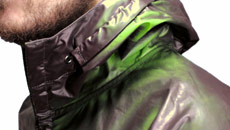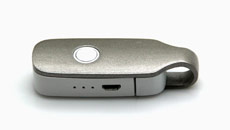It may be a while before humans can wear sharkskin swimsuits, but researchers have now devised a way to print a shark-like skin to see how the bumpy skins of the sharks help them swim so fast.
“This is the first time that anyone has measured the swimming energy benefit of bumpy shark skin compared with smooth skin,” said George Lauder, a biologist at Harvard University in Cambridge, Massachusetts.
The 3D printed shark skin boosted swimming speeds by up to 6.6 percent, the study noted.
Shark skins are composed of microscopic tooth like scales, called denticles.
These tiny bumps disrupt the flow of water as the animal swims, reducing drag.
In the experiment, the researchers took a high-resolution scan of the skin surface of a shortfin 'mako' shark.
To create the actual skin, they used a 3D printer to embed artificial scales into a flexible membrane.
They then used a scanning electron micrograph to image the fake skin and affixed the artificial skin to both sides of a flexible foil that was kept still or was made to flap like a swimming shark, and put it in a tank of flowing water.
Compared with the smooth foil alone, the foil with the artificial skin reduced drag by 8.7 percent at the lowest water flow speeds.
At the highest flow speed, the fake skin actually produced 15 percent more drag than the smooth surface did standing still.
When the researchers flapped the foil like a fish 1.5 times per second, the shark skin improved swimming speed by 6.6 percent - using 5.9 percent less energy, the results showed.
The study appeared in the Journal of Experimental Biology.





